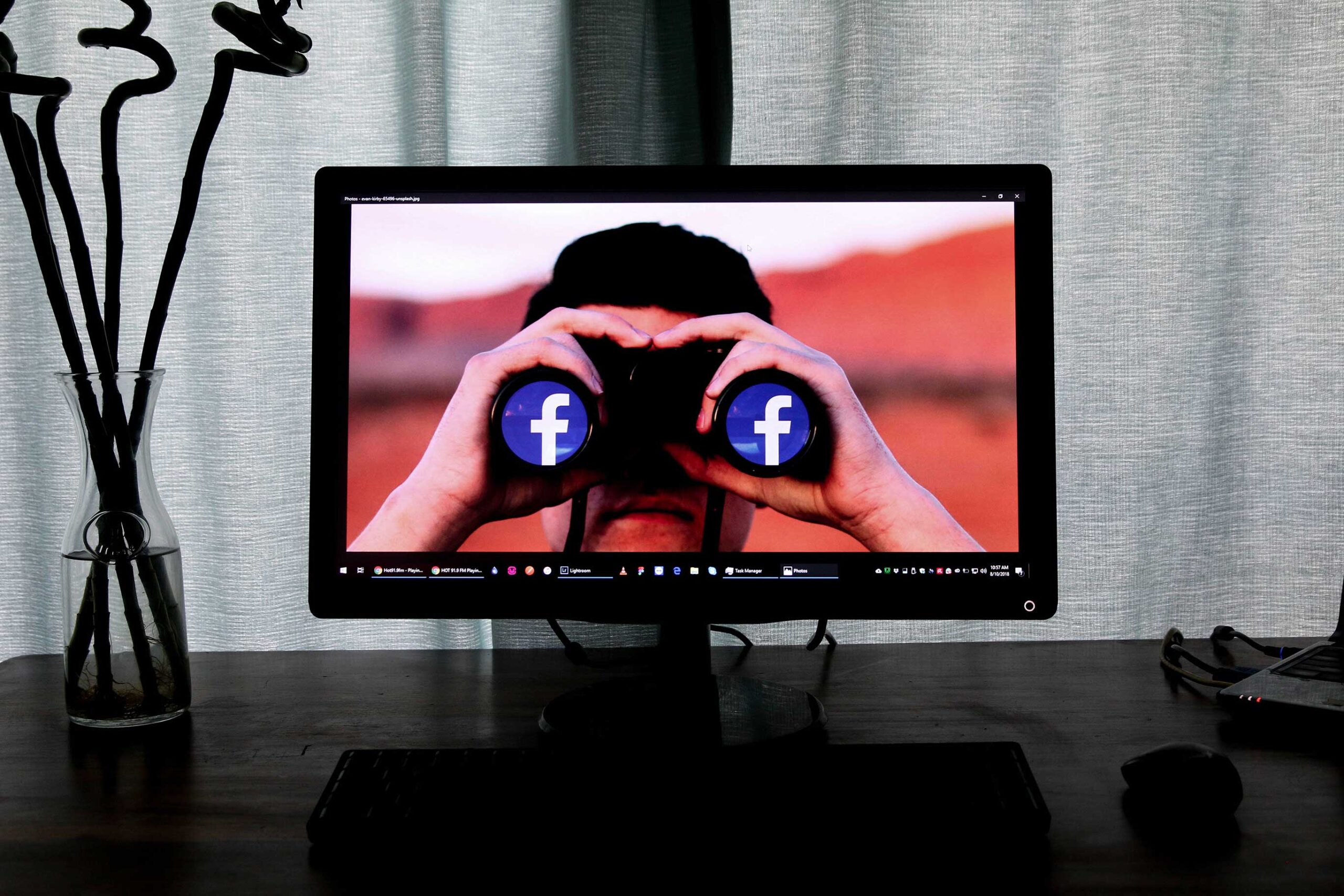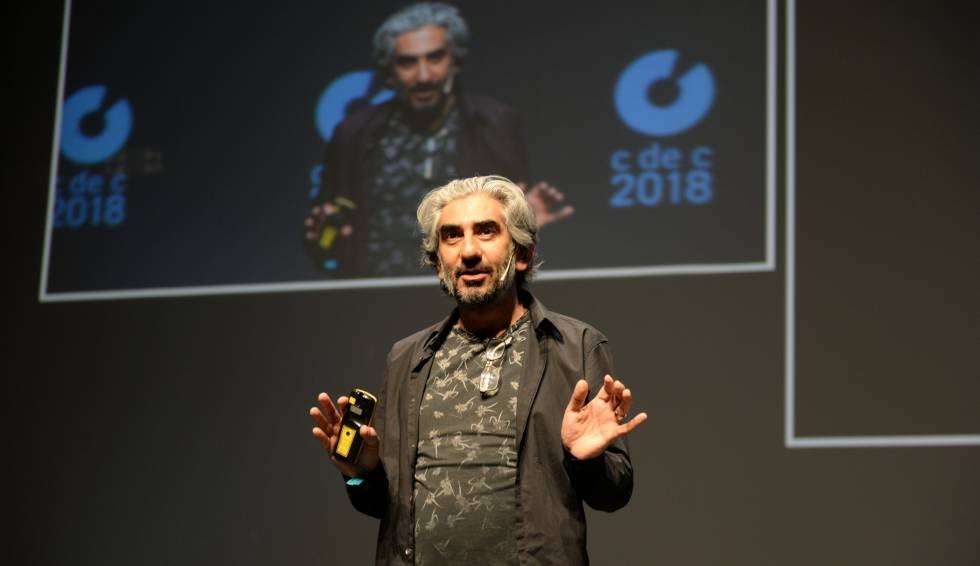Blog Post
“Google and Facebook will lose their monopoly. People want to regain control of their data”
Javier Cortés, Journalist at the Spanish newspaper El País, interview with Jamshid Alamuti. This article explores the topics of AI brought by Alamuti during his participation at the 2018 edition Club de Creativos Festival, that took place in San Sebastián, Spain, from the 12th to the 14th of April.
Jamshid Alamuti, co-founder of Pi School, aims to revolutionize the traditional teaching model. We talk to him about education, artificial intelligence and blockchain.

Jamshid Alamuti (Tehran, 1966) leans his body forward in his seat when he speaks and carefully gesticulates, always keeping eye contact with his dialogue partner. He clearly looks like a dedicated teacher, although he prefers to use terms such as a mentor or counselor. He is the co-founder of Pi School, a school of entrepreneurs that combines artificial intelligence and creativity to apply it to innovation and leadership.“We are living in a moment in which information is available to everyone, the era of networking, so if you want to learn something, it’s no longer about who teaches you what, but where and how to learn.”

His initiative is integrated into Pi Campus, an entrepreneurship ecosystem based in Rome with the ambitious aspiration of creating the European Silicon Valley. “We have to make sure that talent stays at home, that good people do not have to go to the US to succeed. If you want to do something to improve society, you have to be close to the problem to find a solution: be more local.”
Q: What is the teaching model promoted at Pi Campus?
A: We have different formats: events with capacity for 300 people, workshops of 20 students, two-week programs for talented engineers … But the system is always the same. We teach in the pool, in the garden, in the living room … We do not have real classrooms. In this way, knowledge is shared more easily. We look for a more practical education. We think that the best way for a person to learn something is to give them the possibility to solve a problem. The structure of society and organizations are changing from a hierarchical model, where the one above is more important than the one below, to the another one based on networking, in which continuous learning matters most. We believe that teaching should be free, so we do not charge our students.

Q: So, what is your business model?
A: We go to large and small companies, ask them about their strategic problems and see if we can help them. Then, we find the best professionals, we put them together in our space, we give them the problem and we bring them mentors from Google and other leading companies to teach them to work on it. Students receive training and, at the same time, they work on a client’s real problems. After being with us for the eight weeks a program can last, the cost is covered by the companies.
Q: And do students earn money for the work they are doing?
A: Companies do not pay them, because they work on the project for us, but once they finish, it is not uncommon that, after delivering it, companies see the result and get in touch with the students to offer them a job. In that case, we get out of the picture and that is what differentiates us from traditional incubators: we only dedicate ourselves to training and we do not intend to do business beyond that.
Q: What are the problems of traditional education?
A: The main problem starts with the teachers. A university professor has spent years getting his bachelor’s degree, a specialization through a master’s degree and more years in a doctorate. After that, he has a thesis in his head that he continues to develop for research and teaching purposes. When you go to university as a student, the person sitting in front of you is giving you information that is at least 20 years old. If we want to change the education system, the first thing that needs to change is this person.
Q: Teach him to teach.
A: Find out how to change their behavior and attitude, the things they believe in and get them to reeducate, in the sense of being updated. Their knowledge is of inestimable value, because research is important and requires time, but the conversion of this information to make it relevant is essential and this is where the focus must be placed.
Q: Is the Bologna plan contributing to that?
A: In many cases, yes. There are more and more initiatives to teach in different ways and that is very positive. It shows that people are becoming aware of the challenge that exists in education. There are organizations that begin to focus on education from very early stages. If you want someone to think differently but only focus on that during college or even later, it’s harder to get an old-fashioned learning model out of their head.
One of the main drivers of Pi School is artificial intelligence. Do you agree with the catastrophic prediction of Elon Musk or Nick Bostrom if we do not pay attention to how we work with this technology?
The ethical part of artificial intelligence is tremendously important. The person who develops an algorithm doesn’t ask himself why he’s doing it: he does it because he can. We need to find out how to cover different perspectives and control how we use technology, but understanding that it is a tool that, by itself, does not change the world: it is the use we make of it that will transform society.
That said, it is positive that there is awareness on how we have to use technology, because the risk rises fast. It’s good that people like Musk worry about making people aware of how we have to use technology, because the risk is growing fast. Google and Facebook will lose their monopoly power sooner or later because people will increasingly be more careful. After all, artificial intelligence is like an animal that feeds on data and if you give it erroneous data, it ends up collapsing.
Q: Will society collapse those systems?
A: Definitely yes. What I believe is that, with time, we will be more careful with what’s in our hands and we will be responsible for our own data. The Facebook scandal serves as a reminder that there will always be people raising their voices whenever technology is misused.
Q: Can blockchain be the best tool to recover ownership of our data?
A: I think it will affect a lot. The only thing that scares me is that, even today, nobody knows where and who will build blockchain platforms that reach to people to control their own information. Currently, there is not a great platform for blockchain that stands out, although there are more and more. When there is a good option with enough decent alternatives, you can change the use we give to the internet.
Q: Before that, people have to trust those platforms.
A: Of course. It is absolutely a matter of trust. The same thing happens with artificial intelligence: we have to lose the fear of using it. The sooner we do it, the sooner we can take control. It is true that it can end with many jobs, but that is not a problem. Artificial intelligence is a blessing, it promises us something we could never buy: time. See how to financially compensate the time that this technology can give us is the great challenge of society.
Article translated from Spanish. Originally published at El País on the 01/05/2018.
Photo by Glen Carrie on Unsplash.
-

Javier Cortés
Journalist at El País, Spain